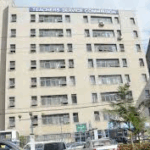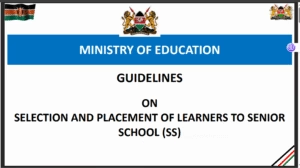The Teachers Service Commission (TSC) has set out the rules governing teacher transfers across the 32,000 public schools. The framework focuses on fairness, medical considerations, and ensuring continuity of learning.
Appearing before the Senate Education Committee, TSC Director of Staffing Antonia Lentoijoni said transfers are determined by factors such as vacancies, equitable distribution of teachers, and valid medical grounds. She said teachers may also be transferred against their will, but applications must be backed by a report from registered doctors and validated by both medical and county/sub-county directors.
“Local supervisors know the teachers better than we do at headquarters. Their input helps us confirm the authenticity of medical records,” she said, stressing the need for county directors to validate medical claims.
In hardship areas like Mandera, where teachers have presented questionable medical reasons for transfers, TSC is keen to ensure transfers are only effected when justified. “We can easily obtain records, whether the illness is genuine or not,” she added.
Verification from field officers is viewed as critical before action is taken. Committee chairperson Esther Okenyuri asked the commission to ensure fairness in promotions, recruitments, staffing policies, and transfers.
The commission has rolled out a pilot e-transfer module that features automated matching and swap functionalities, making the transfer process easier and more transparent.
Teachers can now apply for transfers or service equivalence (swap) online via the digital module, which is expected to reduce paperwork and ensure faster processes.
Each month, thousands of teachers seek transfers, citing health or family reasons. The updated digital system allows teachers to express interest and submit requests directly to institutions, streamlining the process.
TSC acting CEO Evelyn Mitei said the module is designed to enhance transparency and efficiency in teacher deployment.







